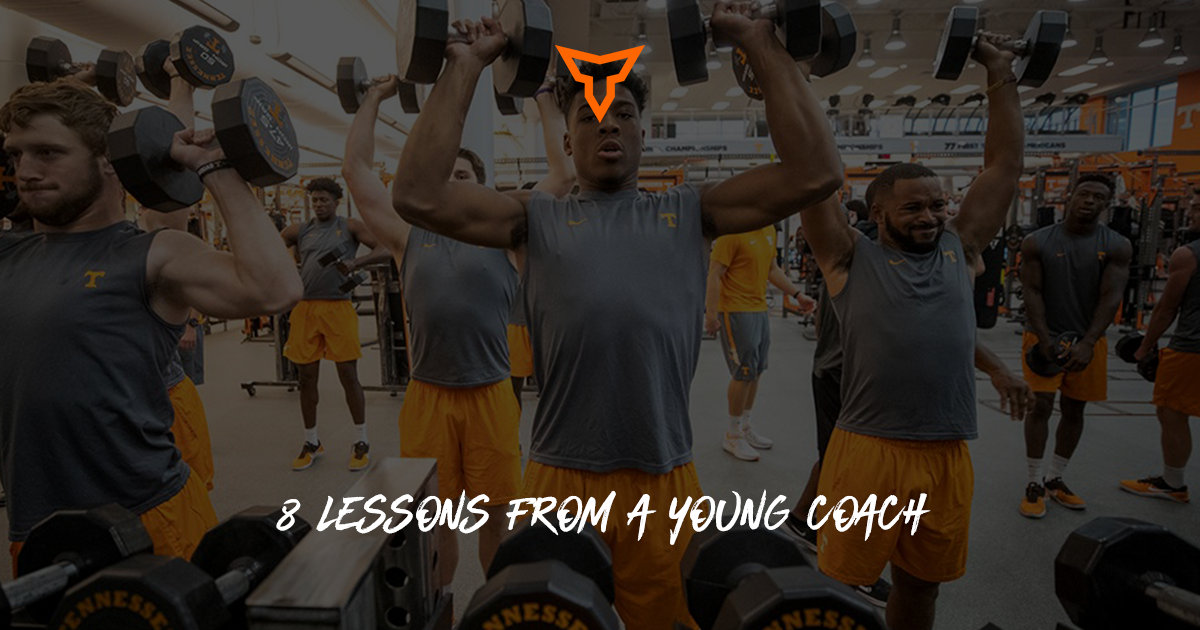Introducing Talkin' Shop v1. with Brian Johnson
“Talkin' shop” is a staple in our industry, and those conversations often contain the hidden gems of our profession. Just practitioners talking theory, application, and execution. I can honestly say I learned twice as much through conversations like this as I ever did from textbooks.
From the first day you enter the field of strength and conditioning or the fitness industry in general, you’re told to network and learn. Connect, connect, connect. That’s the name of the game. For most young coaches, that can be a daunting task and when you ask older coaches how, you just to get the response “ask them good questions”. Good questions? What does that even mean? As a young coach, you’re now completely gun-shy as you put together your list of interview-style questions for whichever coach you’ve worked up to the guts to call. Now, as you get older you learn which questions to ask, and more importantly, you learn how valuable the interactions can be if they’re genuine. The conversations become more enjoyable for both parties, and everyone’s growing.
Enter podcasts… I’d be lying if I said I didn’t consume an absurd number of podcasts just like most other coaches. Here’s the thing, full transparency, I only want to get to the knowledge. I love your journey and I’m glad we all have our own to be proud of, but I think we’ve taken the backgrounds on podcasts a step too far. We can all relate to being excited when you see Coach XYZ is going to be on your favorite show. So, you tune in, and the “tell us about your journey” question turns into a 19-minute monologue that Shakespeare himself would be impressed by. It’s not a knock on anyone or downplaying anyone’s journey. We all have a story and we should own them, but unfortunately, they’re all starting to run together and they’re not exactly edge-of-your-seat listening material. Disclaimer: I host my own podcast so the “offended” people can take a seat on this one.
TeamBuildr CEO, Hewitt Tomlin, and I came up with an idea to capture these “lightning in a bottle” conversations that take place between coaches without the fluff around them. We wanted to highlight coaches who brought something to the table and pull back the curtain on some quick actionable ideas and concepts. With that in mind, we created this video/blog hybrid series called “Talkin’ Shop”.
I will be sitting down with coaches and diving right into the heart of the conversation. 15-20 minutes of no editing, no journeys, just the real deal. We’ll be talking about anything and everything related to our industry including training, leadership, entrepreneurship, motivation, negotiations, etc.
We had our first installment of "Talkin’ Shop" this week with Brian Johnson. Brian is a TeamBuildr author and currently the Director of Football Performance at Cal Berkley. The conversation that followed was a big dose of reality when it comes to the business side of strength and conditioning.
Key Takeaways:
1. The coaching carousel doesn’t care about your plans.
You will be faced with a tough decision at some point in your career whether it is choosing between two positions, accepting and then “unaccepting” as position, or as Coach Johnson experienced, accepting a position and then having a more fitting opportunity become available. Understand that this is still a business and, at times, we have to make business decisions. Create a system for choosing a role, analyzing “fit”, and aligning with your goals and plans for the future and understand that you have to put on your own oxygen mask first. Unfortunately, there’s no playbook on how to handle these types of scenarios, but honesty, gratitude, and humility go a long way.
2. Take responsibility for your contract negotiations
In my opinion, one of the biggest disservices we do our young coaches is teaching them to just be grateful for whatever contract is put in front of them. If we want to change the landscape of salaries and compensation in our industry, we have to arm our young coaches with the knowledge and confidence to counteroffer and fight for more favorable terms. Learning early in your career to navigate contract negotiations and how to gauge your expectations of upcoming contracts can set you up for success. Part of that is just knowing what to look for. A few key items Coach Johnson highlighted were:
- Salary – Do your homework and consider comparable positions at other schools, cost of living, conference pay scales, etc.
- Length – Are multi-year deals available at your institution?
- Structure – Who do you fall under? Medical personnel? Staff? How does this affect stability if coaching changes occur?
- Incentives & Bonuses – Based on what metrics? Can these be negotiated? Are they percentage or flat rate?
- Rollover vs. Renewals – What happens when my contract is up? Who do I talk to? What are the early termination procedures/penalties?
- Time off/Holidays – How is this structured? Are these days paid out if unused?
- Insurance/Benefits – Take the time to sit down with benefit coordinators and make sure you understand what you’re signing up for and which package fits your needs
3. Be able to communicate your value
The underpaid and overworked story has been beaten to death in strength and conditioning and yet it remains unchanged. As coach Johnson points out, we have to do a better job at communicating and illustrating our value. It’s clear that the old “we have master’s degrees and certifications” argument (despite being EXTREMELY valid) isn’t going to be enough to make the change. We need to find ways to get on the same page as an industry and find key performance indicators that we are willing to stand on. Some coaches want to get hired for previous on-field successes. Okay, I see your point, but what about if your sport staff can’t recruit and you have no on-field success? Injury rates are another dangerous place to hang your hat. My response to this is always the same; if you want to be hired based on your injury rate then you better be willing to be fired based on it as well. Do we both agree that it plays a role in our performance as strength coaches? Definitely. Is it what our salary, retention, or advancement should be based on? Not entirely. Ultimately, we have to find ways to communicate and quantify the ways we add value to the program beyond sets and reps.
And on that note...
This conversation with Coach Johnson was an example of how much more we can do as mentors and leaders for our young coaches. It is our responsibility to teach them the things we wish we knew to continue to change the narrative. We can’t just sit at the table silently; we need people who sit at the table and speak the language.
Subscribe to our blog
Subscribe to receive the latest blog posts to your inbox every week.
Related posts

8 Lessons From a Young Coach

My Journey to Tactical: Comparisons to the College Sector

